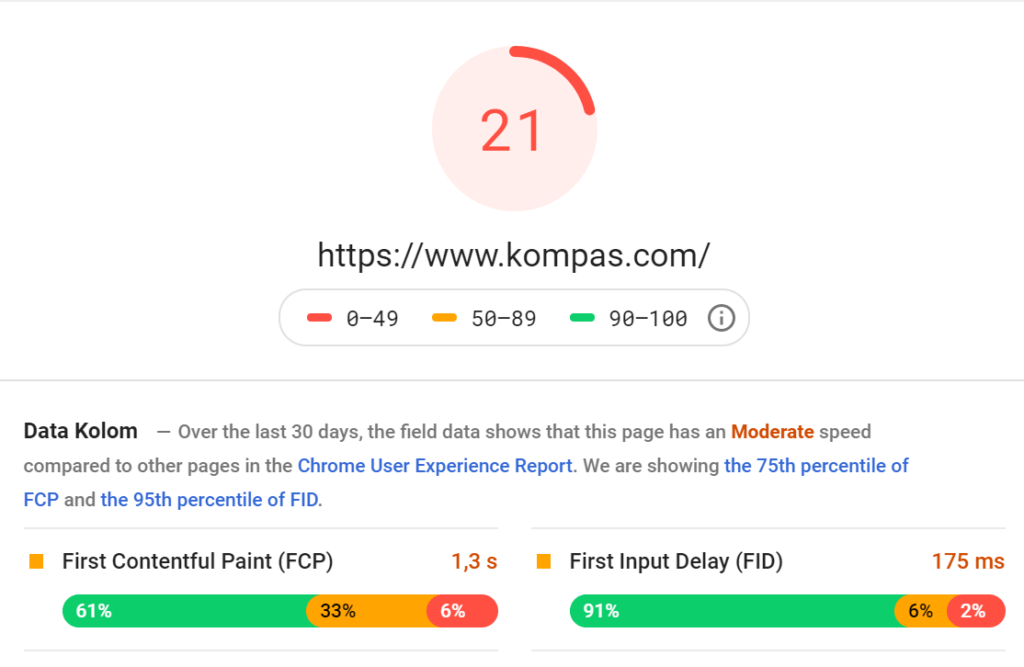On every major event, Google tends to release some new information about the latest change or just emphasizing some important details that need to address.
…and the Google Webmaster Conference is no different.
This is, as far I as remember was the first time I got invited directly by Google to join with other webmasters in the Jakarta area. I have attended some of Google’s events before, but this one is definitely new.
There is a countless number of valuable materials from this event. However, these five points are the most important, yet ignored by the many SEO practitioners.
So, what are those?
#1 The number of words has nothing to do with SEO
This session led by Martin Splitt, Webmaster Trends Analyst, Google and the host of SEO Mythbusting on the Google Webmaster channel (worth checking out).
Some SEO experts say you should write over 2000+ words of content to be the number one of the search result.
Long-form content ranks higher in Google’s search results than short-form content. The average word count of a Google first page result is 1,890 words.
Backlinko — Bryan Dean
However, Martin emphasized that the number of words doesn’t affect your ranking. It is not necessary to flood your content with keyword stuffing and LSI strategy if the topic is narrow.
Key takeaway: Care more about coverage instead of word count. Not all content requires long-form information, some are just tiny but rightfully enough.
#2 Expired domains have a better chance of ranking is totally lie
Martin also says expired domain and old domain have no special ability to boost rank.
Although some SEO experts notice a significant increase in pageview, it is not necessarily because of its age or its previous backlink score. Perhaps, there are some factors that come to play but rarely known.
Essentially, Google will “reset” the domain once it is registered into a new owner. So, any rating or SEO score from the previous life will be gone.
Sorry if you just purchased an old domain.
Key takeaway: Just stay away from the expired domains seller.
#3 A new approach: link out to increase your authority!
This is new!
| THEN | NOW |
| Make good content so other websites link to you. | Link to other websites to make good content. |
This is the effect of the latest Google Search core update which puts Expertise-Authoritative-Trustworthy into a higher position.
Let’s say you are a headphone expert. When making a post, it best to link to other websites that support your opinion or knowledge.
That way, your visitor will be more confident about the information you share. On the other side, this action gives a strong signal to Google that your content is made by the expert who not only provides worth-reading information but also backed up by data.
Key takeaway: Don’t be shy to give a backlink to another website. It may help you rank better.
#4 It’s okay to have a low-performance score, but these metrics should be high
Having a green score on PageSpeed Insight seems like a mission impossible for every webmaster. They believe that faster loading will help rank higher and prevent a customer from leaving the site.
That’s true, there are legit studies prove that.
However, in the session led by Yohan Totting, Web Developer Advocate for Google says you actually only need to optimize these metrics; First Contentful Paint (FCP) and First Input Delay (FIP).
Check out the score from the Kompas.com — a popular news site in Indonesia.

Even though the overall score is pretty low, both FCP and FIP are dominated by green. This means the majority of visitors can see and interact with the web page within the recommended loading time.
He also noted that fast loading time and user experience cannot walk together. Hence, developers need to find a balance between these two.
Key takeaway: Make sure the FCP and FIP are the number one priorities when it comes to optimizing website performance.
#5 By the end of the day, focus on your users
Sometimes, Google Algorithm Update make any SEO practitioner nervous. Not only it would affect ranking, but also another work to follow Google’s latest standard.
Meanwhile, Martin says it is good to always keep up with the latest algorithm, but keep in mind that your visitors/users are more important.
Some websites can “ignore” algorithm update and keep standing on the top search result, simply because of their visitors love it.
For example, the heading tag which considerably suggested as an important factor for ranking by the SEO community actually does not help your site ranking.
Headings on a page are great for SEO & accessibility, but they’re not going to make or break your sites rankings. Be reasonable in what you mark up as a heading, pick things that help to explain what the pages are about.
John Muller — Reddit
I’d like to point out the second sentence. The purpose of heading tag is nothing more to highlight a certain part of the page that tells users what is the content is about.
There are many websites using a bigger font size as the substitution of heading tags. Google understands that and it is not fair to favor heading tag over the other, especially when the purpose essentially the same.
Key takeaway: Google algorithm is based on users. Follow the users, not the algorithm.
That’s it!
I hope that information helps you manage your site in the modern era of SEO. There is another event by the end of November 2019 — a WordPress event by Google.
There will be some influential announcements to be spoken and I can’t wait to share them in this blog!

Leave a Reply